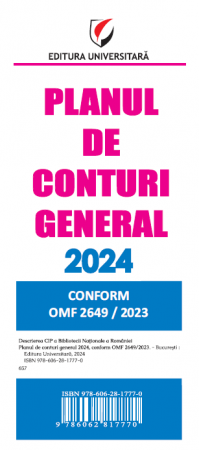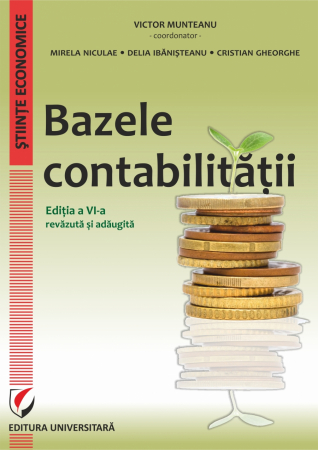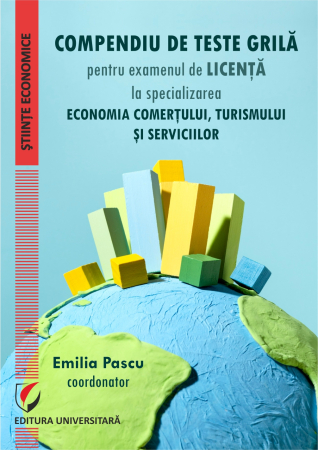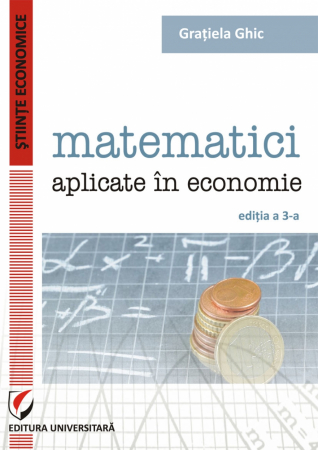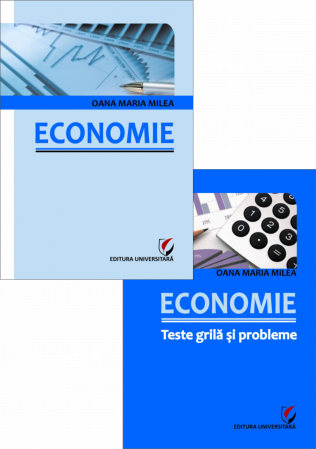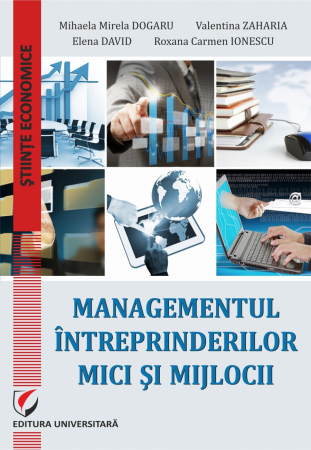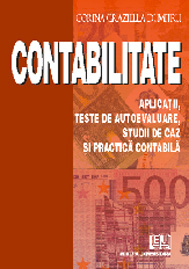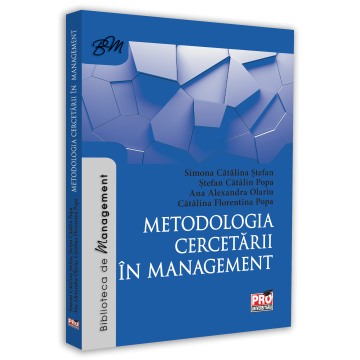ISBN: 978-606-28-0222-6
DOI: 10.5682/9786062802226
Publisher year: 2015
Edition: I
Pages: 226
Publisher: Editura Universitară
Author: Vadim Dumitrascu, Roxana Arabela Dumitrascu
- Description
- Download (1)
- Authors
- Content
- More details
- Reviews (0)
As the insurance and reinsurance activity aims to provide financial protection mechanisms against a wide range of potential hazards, the approach of identification, analysis, quantification and risk assessment is an essential component of this business area. The risk study provides analytical and informational support for the design of insurance products and policies promoted by insurance companies. The offer and strategies of insurance companies result directly from the thorough, rigorous and systematic study of the entire range of possible risks that may affect the activity and integrity of different customer segments. In this way, risk management is the conceptual and methodological core on which the operations carried out in the insurance sector are based.
-
Risk Management in Insurance and Reinsurance
Download
Education:
Faculty of Economics, University "Petre Andrei" of Iasi, specializing in Finance and Accounting (2001);
Post-graduate School of the University FIBAS "Al. I. Cuza" Iasi, master's degree in Economics and Financial Management & Banking (2005);
Academy of Economic Studies (2010), PhD in Finance;
Romanian Academy, SPODE, post-doctoral studies in economics.
Activity:
2001-2011 professor at the Faculty of Economics of the University "Petre Andrei" of Iasi;
2012 Ph.D. Lecturer at the Faculty of Finance, Banking and Accounting, of Christian University "Dimitrie Cantemir" of Bucharest, owner of enterprise financial management courses, insurance and reinsurance and risk management in insurance and reinsurance.
Publications:
Single author: Financial management company. Self-study manual (2012), Insurance and reinsurance. Self-study manual (2012), Prices and and competitivity. Self-study manual (2012), Management of the goodwill value (2008).
Coauthor: Intangible firm capital management (2009), Drift Management (2005), Management versus postmodernity (2005), Defiance complexity (2004), Elements of evaluating companies (2002).
Over 70 articles and studies published in scientific journals.
VADIM DUMITRASCU
Chapter 1
Conceptual foundations of insurance
1.1. The concept of insurance / 12
1.2. Functions and role of insurance / 16
1.3. Insurance typology / 18
1.4. Insurance companies and brokers / 26
Chapter 2
Technical elements of insurance
2.1. Subjects and object of insurance / 29
2.2. Insurance risk and insured interest / 31
2.3. The insured amount and the insurance premium / 35
2.4. Damage, damage, damage and insurance indemnity / 38
2.5. Insurance period and territory covered / 39
Chapter 3
Principles of damage coverage
3.1. The principle of proportional liability / 40
3.2. The principle of first risk / 41
3.3. The principle of limited liability (franchise clause) / 42
3.4. Finding and assessing damages. Determination of compensation 42
Chapter 4
Particularities of the insurance contract
4.1. Definition and characteristics of the insurance contract / 49
4.2. Principles underlying the conclusion and development of insurance contracts / 51
4.3. Stages in the process of concluding the insurance contract / 53
4.4. Termination of the insurance contract / 56
4.5. Insured events / 57
4.6. Rights and obligations provided in the insurance contract. / 60
Chapter 5
General notions regarding reinsurance
5.1. Basic elements of reinsurance / 65
5.2. Characteristics of optional and contractual reinsurance / 68
5.3. Types of proportional compulsory reinsurance / 72
5.4. Types of non - proportional compulsory reinsurance / 76
Chapter 6
Financial stability and solvency of the insurance company
6.1. The notion of financial stability of the insurance company / 80
6.2. Technical reserves - factor of stability and solvency of the insurance company / 82
6.3. Solvency margin of the insurance company / 85
Chapter 7
Economic and social efficiency of insurance
7.1. The notion of economic-social efficiency of the insurance activity / 91
7.2. Indicators used to measure the economic and social efficiency of insurance / 92
Chapter 8
General notions regarding risk management in the field of insurance and reinsurance
8.1. The relationship between risk and insurance / 100
8.2. The notion of risk management / 105
8.3. Methods of risk transfer by insurance / 106
8.4. Ethics in insurance / 107
Chapter 9
Stages of risk management in insurance and reinsurance
9.1. The structure of the risk management process / 110
9.2. Identifying risks and uncertainties. / 112
9.3. Risk assessment or quantification / 118
9.4. Risk control / 120
Chapter 10
Risk situations at the organizational level
10.1. Organizational risk multiplication factors / 129
10.2. Meanings and implications of risk at the organizational level / 131
10.3. Cyclical evolution of risk situations / 136
10.4. Organizational reactions to risk situations / 139
10.5. Implementation of risk management systems / 143
Chapter 11
Organizational decisions in risk conditions
11.1. Generic decision - making strategies to address risk and uncertainty / 150
11.2. Choosing the decision - making strategy / 156
Chapter 12
Adapting organizational strategies to conditions of risk, uncertainty and turbulence
12.1. Relaxation of the strategy under the pressure of turbulence / 160
12.2. The impact of nonlinearity on the management mission / 166
Chapter 13
Crises as exacerbations of risks specific to organizations
13.1. Self - organizing behaviors as strategies in conditions of risk, uncertainty and crisis / 170
13.2. Cyclical evolutions and crises of economic systems / 179
13.3. Disorder-self-organization dynamics in economic systems 181
13.4. The installation of crises in economic systems / 185
13.5. Risks and opportunities specific to chaotic systems / 194
Chapter 14
Strategies for dealing with crises at company level
14.1. The meanings of organizational crises / 197
14.2. The communication crisis as a substrate of the organizational crisis / 199
14.3. Systemic approach to crisis management / 202
14.4. Risk management in investment projects / 207
14.5. Consideration of the risk dimension in establishing the discount rate / 214
General bibliography / 218
As the insurance and reinsurance activity aims to provide financial protection mechanisms against a wide range of potential hazards, the approach of identification, analysis, quantification and risk assessment is an essential component of this business area. The risk study provides analytical and informational support for the design of insurance products and policies promoted by insurance companies. The offer and strategies of insurance companies result directly from the thorough, rigorous and systematic study of the entire range of possible risks that may affect the activity and integrity of different customer segments. In this way, risk management is the conceptual and methodological core on which the operations carried out in the insurance sector are based.
The insurance and reinsurance business represents the economic sector which, among other things, has the difficult function of taking over and absorbing the risks from the other areas of the economy. Another function of maximum importance assumed by insurance and reinsurance refers to the attenuation of discrepancies and inconsistencies too accentuated that appear periodically between real economic cycles and financial cycles. Within this sector, the "underground" tendencies are externalized, hidden from superficial or formal observations, outlining the main economic, financial or other risks. It turns out that insurance, as a "risk taker", forms an absolutely indispensable support mechanism for the normal functioning of the market economy. The efficiency of insurance and reinsurance is the direct expression of the level of uncertainty that characterizes the economy, manifesting a high degree of sensitivity to variations of random and unpredictable phenomena.
The profound structural changes that have taken place in the world economy, as well as in the national one - globalization, dematerialization, deregulation, sectoral relocations, deepening crisis, etc. - urge us to look critically not only at decision-making practices at different organizational levels of the economy. inspired them. These mutations exert particularly pressing effects in the sense of re-examining the theoretical concepts and models in most financial sciences. Insurance and reinsurance not only are not an exception, but, on the contrary, are at the forefront of this conceptual renewal, as it is the field that has taken on the mission of answering some fundamental questions:
What is currently the risk and, consequently, the feasibility of an economic, social or personal construction?
What are the main factors (inducers) of risks in modern society?
What are the means of protection against the tendency to multiply the risks?
Of course, the issue of insurance and reinsurance is much more complex, but we must recognize that the other concerns are, directly or indirectly, only derivatives subordinated to these three crucial issues, and the sharpness of the economic crisis forces us to revise, sometimes even radically, traditional perspectives on them.
We intend that the work we have elaborated should be constituted even if only in a modest contribution to the exploration of this issue, as rich as it is important for the competitiveness and economic consistency of a country.
Assoc. Dr. Roxana Arabela Dumitrascu
Assoc. Dr. Vadim Dumitrascu

6359.png)
![Risk Management in Insurance and Reinsurance [1] Risk Management in Insurance and Reinsurance [1]](https://gomagcdn.ro/domains/editurauniversitara.ro/files/product/large/managementul-riscurilor-in-asigurari-si-reasigurari-804-979901.jpg)
